A pro-Beijing activist has petitioned a visiting top Chinese official, urging for clarification on “soft resistance” and the “bottom line” of the national security law, and saying that a lack of certainty around what was allowed had left Hongkongers afraid to speak up.

Chan Ching-sum planned to deliver her petition outside Beijing’s Hong Kong Liaison Office in Sai Ying Pun at around 10am on Monday. However, she said it had been “suggested” that she do so near the MTR station instead, about an eight-minute walk from the Liaison Office.
Reporters were told by police stationed outside the office to wait about 100 metres away, and HKFP observed plainclothes police officers along the route from Sai Ying Pun MTR station to the Liaison Office.
Wearing a red hoodie and a red mask, Chan stood against a wall, alone, near exit B3 exit of Sai Ying Pun station and read out an open letter to Xia Baolong, the director of the Hong Kong and Macao Affairs Office (HKMAO), as police officers recorded her nearly 10-minute long speech.
“Since Beijing imposed the national security law in Hong Kong, the general public has had a lot of questions. Why? Because Chief executive John Lee frequently said there was soft resistance and signs of black violence in the city… Hongkongers are very confused… Actually what is soft resistance?” Chan said in Cantonese.
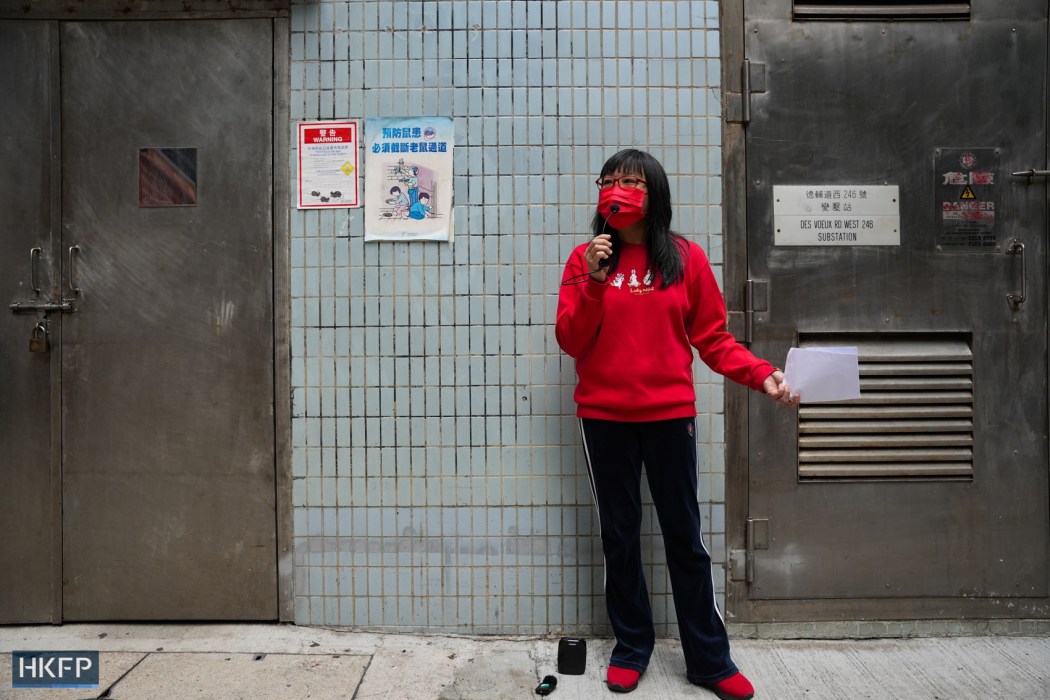
A convenor of pro-Beijing civil groups the Red Force and the Caring Hong Kong Power, Chan was known for her radical stance against pro-democracy activists during the 2014 Umbrella Movement – a large-scale civil disobedience campaign calling for the right to vote.
She continued with her open letter: “I want to ask the central government and the [HKMAO] director Xia, as Beijing delivered the national security law, what is its bottom line? Which kinds of speech violate the law? The general public is uncertain and we dare not speak up. We feel unsafe.”
Xia arrived in Hong Kong last Thursday for a week-long visit to understand Hong Kong’s economic development and district administration matters, according to a statement from the HKMAO. Chief Secretary Eric Chan said on Thursday that Xia was “very confident” about the city’s “high-quality development. ”
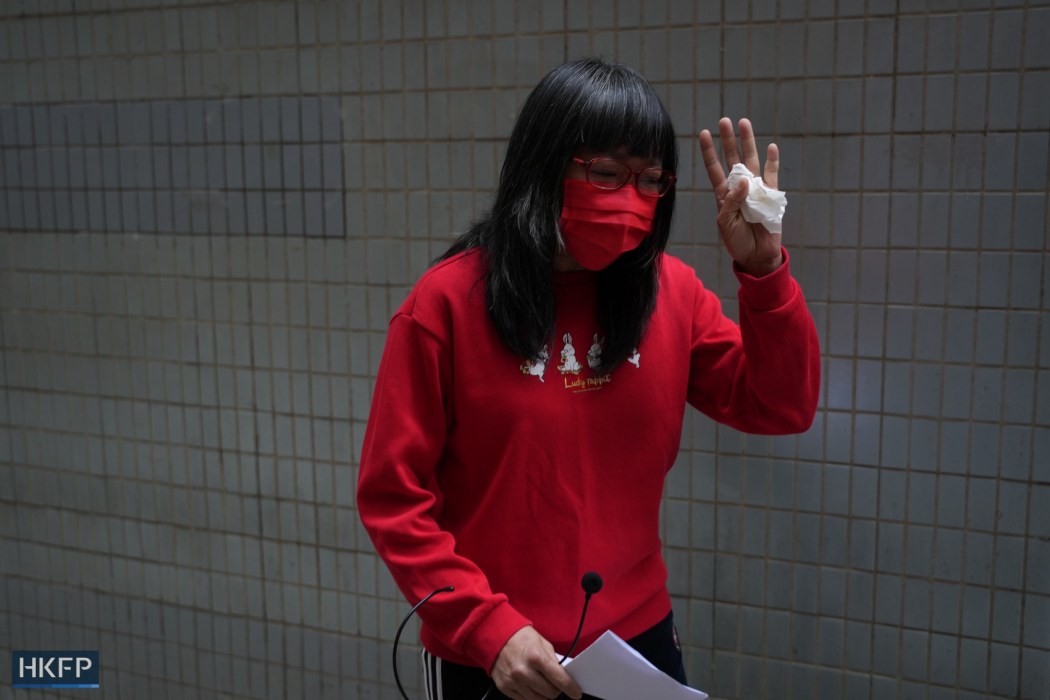
When asked by HKFP last week if protests would be allowed during Xia’s visit a police spokesperson said: “Notification of public events to Police will be processed in accordance with the law of Hong Kong. Optimum response as well as policing plan will be considered based on the threat to national security, public safety and public order.”
The activist Chan said she was grateful for Xia’s visit. “[Xia] is very concerned about Hong Kong and I hope to express my opinions during his visit,” Chan said.
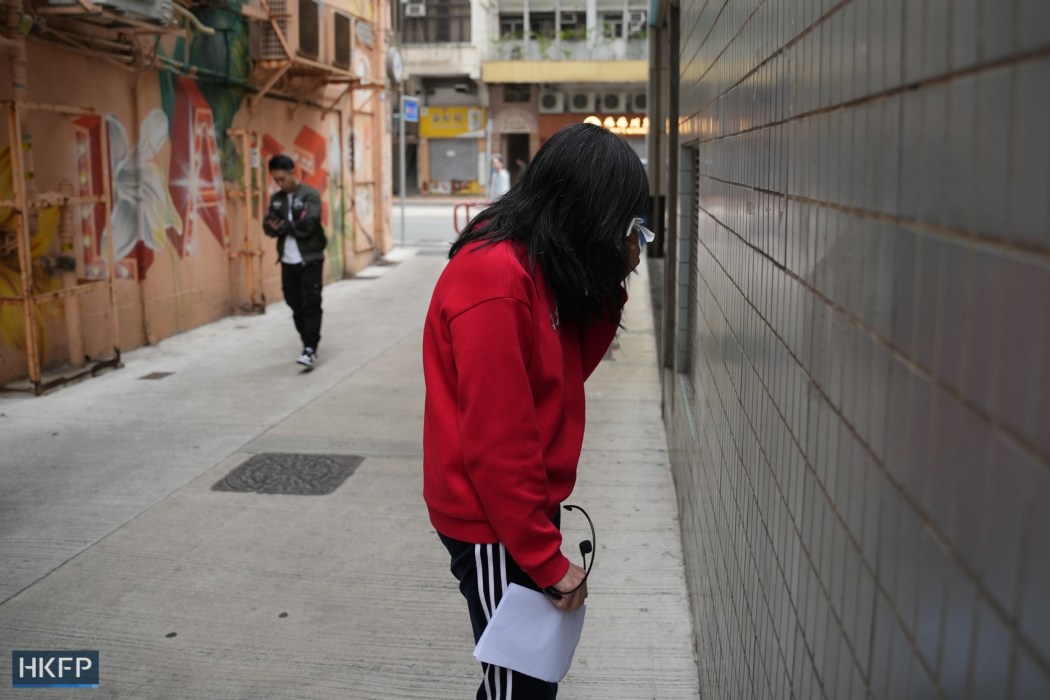
“We have always wanted Hong Kong to become better and better. After the central government took back ‘comprehensive jurisdiction’ of Hong Kong, I always hoped the city could…” Chan said, before pausing and bursting into tears. An officer from the public relations wing of the police force handed Chan some tissues.
In 2014, Beijing published a white paper on One Country, Two Systems, affirming Beijing’s “overall jurisdiction” over Hong Kong. Democrats protested the move, worrying that it would harm the city’s autonomy.

Following her speech, Chan said she wanted to submit two open letters to Xia. A man in a grey jacket approached and took the two letters from her without saying anything. He refused to confirm his identity when asked by reporters whether he worked for the Liaison Office.
‘Soft resistance’
Rising from a 2021 speech made Luo Huining, the then-director of the Liaison Office, the term “soft resistance” was uttered by top officials with increasing frequency throughout 2023.
Xia warned the city to be vigilant against soft resistance last April, and the authorities have vowed to take a hard line against it but failed to define what is meant by the term.
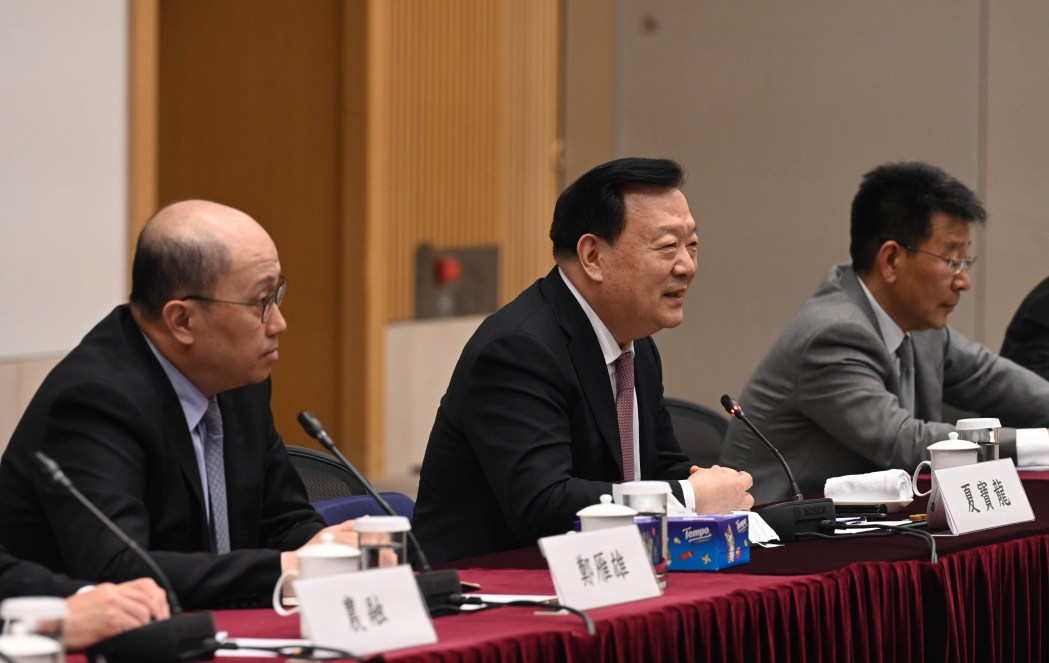
In late January, Lee hit back at pro-establishment lawmaker Paul Tse, who recently criticised “high-pressure and high-profile” law enforcement actions in the city in the Legislative Council (LegCo), with Lee calling the politician’s wording “dangerous.”
Lee said the lawmaker’s remarks reminded him of those made by the opposition during the 2019 protests and of soft resistance.
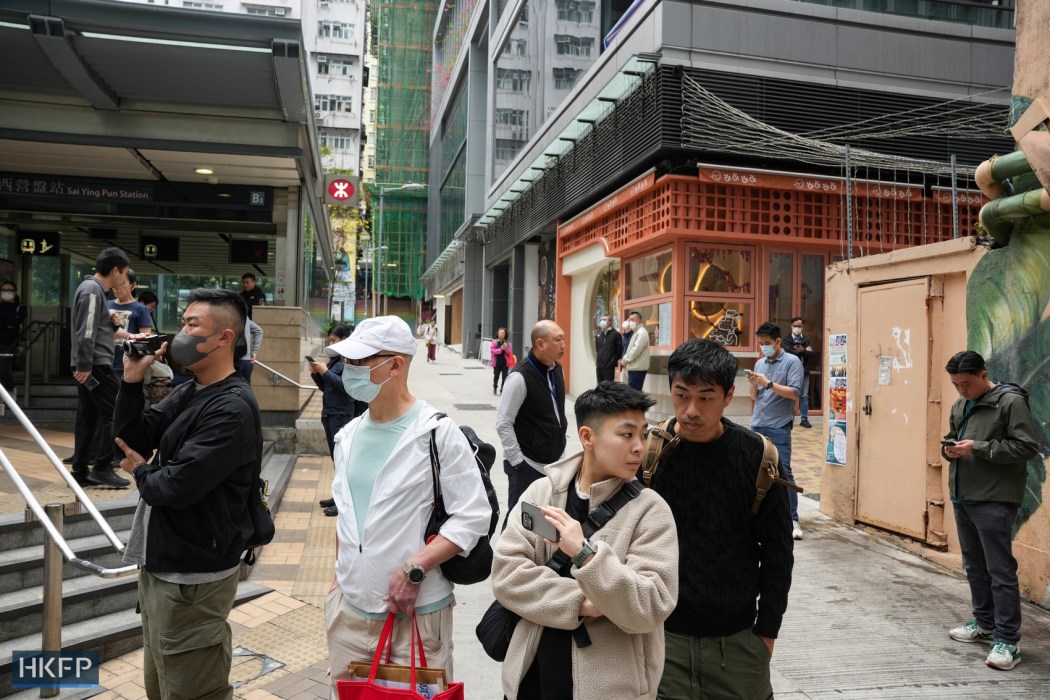
Chan mentioned Tse while delivering her petition on Monday.
“The [chief executive] labelled [Tse] as soft resistance… What is resistance? Saying something unpleasant is soft resistance?” Chan said. “No one at LegCo dare speak up – it has become a machine of raising hands to vote. Why do we still need the legislature?”
Chan also accused Lee’s government of meting out excessive punishments on drivers and small businesses on Chinese social media in late January. However, her post was deleted by Weibo two hours following its publication.
Support HKFP | Policies & Ethics | Error/typo? | Contact Us | Newsletter | Transparency & Annual Report | Apps
Help safeguard press freedom & keep HKFP free for all readers by supporting our team

























